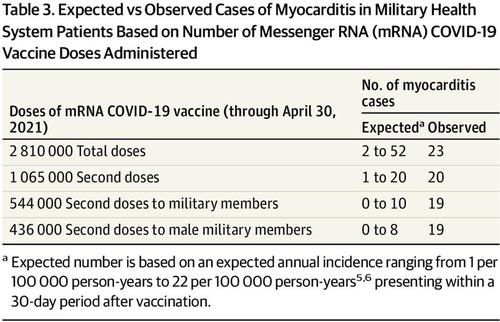People with conditions that compromise their immune systems exhibit a wide spectrum of antibody responses to COVID-19 vaccination, ranging from only 1 in 5 lung transplant patients having an antibody response to a nearly complete response in patients with well-controlled HIV. The results are part of an interim analysis of a large study on UPMC patients and health care workers.
The study is one of the first to verify that the ability of blood from immunocompromised participants to neutralize the virus closely mirrors their antibody levels measured by a Food and Drug Administration (FDA)-approved test, meaning that antibody testing is a good proxy for neutralizing titers.
In an effort to share crucial information to guide clinical and public health decisions, UPMC and
University of Pittsburgh School of Medicine physician-scientists published the findings today in
medRxiv, a preprint journal, and announced the results ahead of peer-reviewed publication.

“Our study highlights the urgent need to optimize and individualize COVID-19 prevention in patients with immunocompromising conditions and have other treatments—such as
monoclonal antibodies—available should vaccination fail,” said lead author Ghady Haidar, M.D., UPMC transplant infectious diseases physician and assistant professor in
Pitt’s Division of Infectious Diseases. “Given the Centers for Disease Control and Prevention’s recommendations permitting vaccinated people to abandon masking and social distancing in most settings, our findings also have implications for public health guidance, since nearly 4% of Americans are immunocompromised.”
Between April 14 and June 14, the UPMC-Pitt team tested blood samples from 107 healthy volunteer health care workers and 489 immunocompromised patients who had completed COVID-19 vaccination as part of the
COVID-19 Vaccine in the Immunocompromised Study (CoVICS). The immunocompromised patients included those who had a solid organ transplant, an autoimmune disorder, blood cancer, a solid tumor cancer or HIV.
Antibodies are proteins that block invading pathogens—such as SARS-CoV-2, the virus that causes COVID-19—from infecting cells. They are produced by the immune system in response to vaccination.
While 98.1% of the health care workers produced antibodies after vaccination, only 37.2% of the vaccinated solid organ transplant patients were positive for antibodies; 54.7% of the blood cancer patients; 82.4% of those with solid tumor cancer and 83.8% of patients with autoimmune disorders. In contrast, 94.6% of patients with HIV made antibodies.
Among patients with solid organ transplants, lung transplant patients had a particularly poor response to vaccination, with only 22.2% producing antibodies. Liver transplant patients fared best, with 60.6% of study participants producing antibodies after vaccination. Patients who received their transplant less than a year ago were less likely to respond to vaccination than those transplanted earlier.
In addition, cancer patients receiving radiation therapy and patients taking certain medications—such as antimetabolites for transplant and anti-CD20 monoclonal antibodies for autoimmune disorders—were more likely not to produce antibodies after COVID-19 vaccination.
The researchers then took blood sera, the amber-colored, protein-rich liquid that separates out when blood coagulates, from a subset of the participants—30 health care workers and 36 immunocompromised patients—and tested it for its ability to neutralize SARS-CoV-2 pseudovirus. They found that the ability of the participants’ sera to neutralize the virus correlated strongly with their antibody levels measured by an independent FDA-approved test.

“This is important because we’ve seen several studies indicating that immunocompromised people are less likely to produce antibodies in response to COVID-19 vaccination,” said senior author
John Mellors, M.D., chief of the Division of Infectious Diseases at UPMC and Distinguished Professor of Medicine at Pitt. “And we can assume this means they’re less likely to be able to fight the virus, but until we were able to test for virus neutralization, that was only an assumption. Our results give us more confidence in saying that people who do not produce antibodies truly are at greater risk of COVID-19 infection and that the level of antibodies produced is a proxy for ability to neutralize the virus.”
However, the physician-scientists stressed that the immune system has more tools than antibodies at its disposal, including T-cells and other immune cells, which may provide some level of immunity. So, while it is concerning when someone gets a negative antibody test, it is still possible for the immune system to fight off the virus, even if vaccination does not produce antibodies, Mellors said.
“At this point, clinical advice does not change for immunocompromised people, whether an antibody test is positive or negative,” said Haidar. “They should still wear a mask in public, practice social distancing, get vaccinated and encourage those around them to be vaccinated. A positive antibody test does not give us certainty that they are protected against the virus, and the risk of COVID-19 causing serious complications and death still exists.”
Additional authors on this research are Mounzer Agha, M.D., Amy Lukanski, D.N.P., Kelsey Linstrum, M.S., Rachel Troyan, M.B.A., Andrew Bilderback, M.S., Scott Rothenberger, Ph.D., Deborah K. McMahon, M.D., Melissa Crandall, M.B.A., P. Nathan Enick, B.S., Michelle Sobolewski, M.S., Kevin Collins, M.B.A., Marc B. Schwartz, M.D., Jeffrey M. Dueker, M.D., Fernanda P. Silveira, M.D., Mary E. Keebler, M.D., Abhinav Humar, M.D., James D. Luketich, M.D., Matthew R. Morrell, M.D., Joseph M. Pilewski, M.D., John F. McDyer, M.D., Bhanu Pappu, Ph.D., Robert L. Ferris, M.D., Stanley M. Marks, M.D., Cynthia Klamar-Blain, Urvi M. Parikh, Ph.D., Amy Heaps, M.S., Paula L. Kip, Ph.D., Alan Wells, M.D., Tami Minnier, M.S., and Derek Angus, M.D., all of Pitt, UPMC or both.
PHOTO INFO: (click images for high-res versions)
CREDIT BOTH: UPMC
Top:
CAPTION: Ghady Haidar, M.D., UPMC transplant infectious diseases physician and assistant professor, University of Pittsburgh Division of Infectious Diseases.
Bottom:
CAPTION: John Mellors, M.D., chief of the Division of Infectious Diseases at UPMC and Distinguished Professor of Medicine, University of Pittsburgh.
https://www.upmc.com/media/news/063021-haidar-covics-interim-medrxiv


